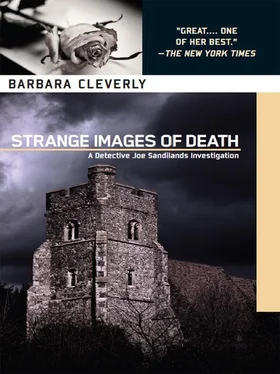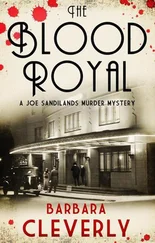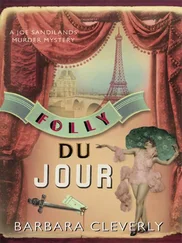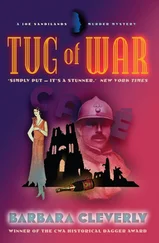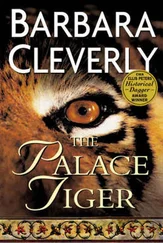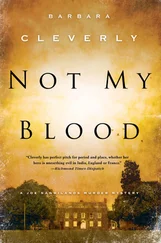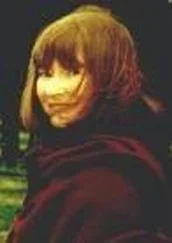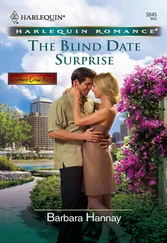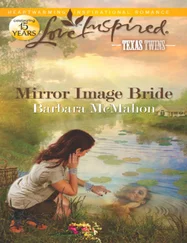Barbara Cleverly - Strange Images of Death
Здесь есть возможность читать онлайн «Barbara Cleverly - Strange Images of Death» весь текст электронной книги совершенно бесплатно (целиком полную версию без сокращений). В некоторых случаях можно слушать аудио, скачать через торрент в формате fb2 и присутствует краткое содержание. Год выпуска: 0100, Издательство: Soho Press, Жанр: Исторический детектив, на английском языке. Описание произведения, (предисловие) а так же отзывы посетителей доступны на портале библиотеки ЛибКат.
- Название:Strange Images of Death
- Автор:
- Издательство:Soho Press
- Жанр:
- Год:0100
- ISBN:нет данных
- Рейтинг книги:3 / 5. Голосов: 1
-
Избранное:Добавить в избранное
- Отзывы:
-
Ваша оценка:
- 60
- 1
- 2
- 3
- 4
- 5
Strange Images of Death: краткое содержание, описание и аннотация
Предлагаем к чтению аннотацию, описание, краткое содержание или предисловие (зависит от того, что написал сам автор книги «Strange Images of Death»). Если вы не нашли необходимую информацию о книге — напишите в комментариях, мы постараемся отыскать её.
Strange Images of Death — читать онлайн бесплатно полную книгу (весь текст) целиком
Ниже представлен текст книги, разбитый по страницам. Система сохранения места последней прочитанной страницы, позволяет с удобством читать онлайн бесплатно книгу «Strange Images of Death», без необходимости каждый раз заново искать на чём Вы остановились. Поставьте закладку, и сможете в любой момент перейти на страницу, на которой закончили чтение.
Интервал:
Закладка:
Chapter Thirty-Four
‘He’s lying!’ Cecily shouted, pointing a finger at Joe. ‘I haven’t been inciting to riot! They were already rioting and if-’
‘Calm down, please, Cecily,’ Joe said agreeably. ‘We just want some advice. We want to tap into your expertise if you’d be so good as to grant us a minute of your time. I’ve heard you spoken of as something of a botanist. You are an expert on the flora of Provence, I understand?’
‘Oh, well, I wouldn’t say-’
‘I’m thinking now of the wild flowers, grasses, herbs-that sort of thing. Have I come to the right shop?’
His crisp and friendly tone found a response in her reply. ‘Ask me. I’ll try. Have you got a sample for me to identify? Is that it?’
‘Not exactly. I just need an impressive-sounding name. Any low-growing, sun-loving wild plant particular to this part of Provence will do. The rarer the better. I want to impress someone with my knowledge.’
‘Well, you’ll be wanting a Latin name then or-how about a Provençal one? You could consider … um … well, my favourite name is the one they have for thyme. Le farigoule they call it around here. Creeping thyme- Thymus serpyllum -but that’s not at all rare. Better still … Yes! Woolly thyme is the rather splendidly named Thymus pseudolanuginosus .’
‘Perfect! Thank you very much. That’s all. Now, will you go along with the corporal, Cecily? He’s just going to ask you to step into the room next door with him to fill in a few details-forwarding address and suchlike. You’ll be wanting us to send on your film when we’ve done with it. He’ll only keep you a few minutes.’
Long enough to keep Cecily from view while the second officer appeared at the door with the second interviewee, he calculated.
A sharp tap and Jane Makepeace came in. She greeted them pleasantly. ‘Commander. Commissaire. Well, it’s eeny, meeny, miney, mo, this afternoon, isn’t it? I wondered when it would be my turn to hear the clink of the cuffs.’ And, catching sight of Dorcas seated behind the door: ‘Oh, we meet again, Dorcas! Have they put you to sit in the corner? What have you been up to?’
‘Miss Joliffe is here as a witness,’ said Jacquemin.
‘Sounds serious! What on earth have you witnessed, Dorcas, dear?’
‘Nothing as yet,’ said Joe. ‘But she will witness an event in the coming minutes. She will have the dubious privilege, along with me and the Commissaire, of witnessing your confession to the murder of Estelle Smeeth.’
The spontaneous burst of laughter was disarming. It was not scornful, not nervous, not threatening. Yes, Joe admitted to himself, Miss Makepeace had a very nice laugh.
Jacquemin caught his eye and shrugged the responsibility for the interview over to Joe.
‘Lord Joe! What’s next on your script? I know-you’re going to say: “The game’s up!”’
‘Do you agree to confess with no further ado to this crime or will you insist on hearing a full account of your movements and deeds on the day in question?’ Joe asked.
‘Neither. I have nothing to confess and I certainly haven’t time to sit here and listen to the next instalment in your increasingly desperate flights of fancy. Busy woman, Joe! I have things to do. Objects and people to stick together, you know …’ Her eyes flashed a warm and conspiratorial message to him. ‘You’ll have to try this out on whoever’s next on your list. That’ll be number four,’ she said helpfully and made to turn for the door.
‘Sit, mademoiselle!’ Jacquemin bellowed. His right hand went dramatically to his pistol holster and hovered there just long enough to make Jane Makepeace swallow, glare and decide to take the seat offered.
‘Joe, this goes too far,’ she advised him. ‘Enough’s enough! You must call this attack hound to heel. Who does he think he is? Who does he take me for?’
‘Miss Makepeace, we both take you for a killer. The killer of Estelle Smeeth. We’re waiting to hear your confession.’
‘I will say not a word further until I have my father’s lawyer at my side, to offer counsel,’ she announced.
‘Well, you’d better tell him to attend you in the women’s prison in Avignon,’ said Joe. ‘In about a month’s time. They do things differently in France.’ He had no idea what the rules were himself and was reasonably sure that Jane Makepeace knew even less than he did of the French legal system. Jacquemin backed him up with a sententious nod.
‘The first thing the examining magistrate, after reading your confession (which we will note down), will want to know is why you killed Miss Smeeth,’ Joe said. ‘Would you care to rehearse it with us first?’
The answer came patiently: ‘I’ve told you-I didn’t. I liked her. I was her friend. Why would I kill her?’
‘On the contrary, you loathed her and were jealous of her. But these feelings in themselves were not sufficient to incite you to murder. Your motive went beyond personal dislike. Miss Smeeth’s death was a cold and clinical event, a step on your ladder to the goal you had set yourself.’
Jane appeared puzzled. ‘Goal? And what do you imagine that to have been? To get myself arrested by the Police Judiciaire? For that is the only result I can see ensuing. I could have bumped off … um … Cecily or yourself with much less fuss, had I wished to provoke a pantomime of this nature.’
‘It was a step in your progression. A death to fulfil the desire of a black and pitiless heart.’
Her lip curled. ‘I never read penny dreadfuls and I don’t want to sit here and listen to you regurgitating one.’
‘I see I shall have to tell a convincing tale, Miss Makepeace, in blunt policeman’s language. Not to satisfy you particularly-but a French judge. Where to begin?’
Joe had already decided on his beginning. ‘With the clever, choosy and disillusioned woman who met last year an interesting guest at her father’s dinner table. A French aristocrat. Lord Silmont. September, was it, Jacquemin, when the lord paid his visit to Harley Street? The stamps on his passport bear witness as do the labels on the medicine bottles in his cabinet. Do feel free, Miss Makepeace, to step in and correct me at any point. The talented daughter finds she has much to talk about with her father’s elderly art-loving patient. He is impressed with her. He is a man who, by his own admission, enjoys collecting people as well as objects. He invites her back to work on his collection of antique possessions. Eager to escape the dim bowels of the British Museum with its masculine environment, its scramble for promotion, its petty jealousies, and spread her wings, she accepts.
‘She’s good at her job. She settles in and finds her surroundings congenial. More than congenial-she falls in love with the château and all it contains. The lord, aware that she understands his physical condition, trusts her doubly. But it is not the lord who intrigues her. It is his younger cousin. She becomes deeply attached to the future owner of the household she has already fallen for.
‘She grows ever closer to Guy de Pacy, content to take her time and make herself indispensable to him. And she monitors the lord’s advancing sickness. But then her idyll is disturbed by the annual irruption into the house of the summer colony of artists from whose efforts the lord derives all manner of benefit. And one of their number, a pretty young model, sets her cap at the steward. Though skilled in the art of fending off female attention-Guy has his own demons to contend with-such is the allure of this girl that he finds himself swept off his feet and in the middle of an affair with the much younger woman.
‘It has to be stopped. Our London lady-shall we call her Jane? — has a word in the ear of the lord. We must imagine the poison she drips in-“promiscuous, manipulative whore,” may well have featured. The family name is threatened once more. Guy must be made aware. Brought back to his senses.
Читать дальшеИнтервал:
Закладка:
Похожие книги на «Strange Images of Death»
Представляем Вашему вниманию похожие книги на «Strange Images of Death» списком для выбора. Мы отобрали схожую по названию и смыслу литературу в надежде предоставить читателям больше вариантов отыскать новые, интересные, ещё непрочитанные произведения.
Обсуждение, отзывы о книге «Strange Images of Death» и просто собственные мнения читателей. Оставьте ваши комментарии, напишите, что Вы думаете о произведении, его смысле или главных героях. Укажите что конкретно понравилось, а что нет, и почему Вы так считаете.
